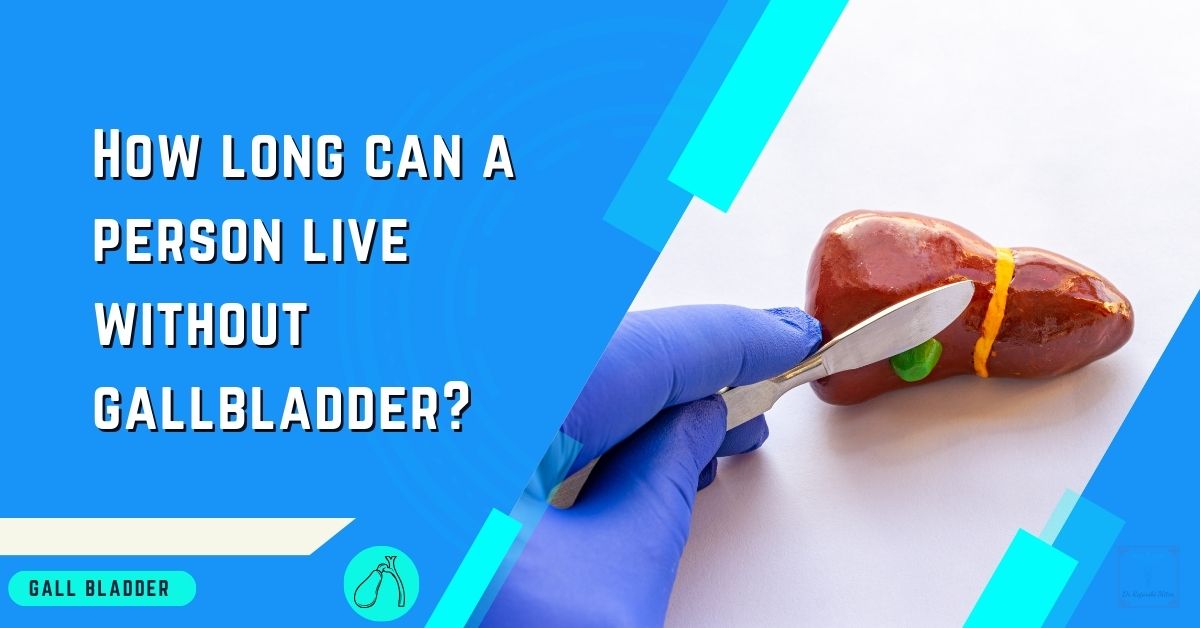Many patients wonder how long they can live a healthy life without their gallbladder after having it surgically removed. A person can live a completely normal and healthy life without a gallbladder. Once the gallbladder is removed, the body adapts to its function of digesting fats. As your surgeon, I want to provide detailed information on the prognosis and life expectancy following gallbladder removal. I will discuss the risks that can potentially impact longevity as well as lifestyle changes to optimize health.
Life Expectancy After Gallbladder Removal:
1. Most People Live a Normal Lifespan
For the majority of patients, having the gallbladder removed does not negatively impact life expectancy. They can expect to live a full and healthy life.
2. Depends on Underlying Condition
Some ongoing conditions like cirrhosis, cancer, or chronic infections that lead to gallbladder removal may reduce life expectancy.
3. Risk of Digestive Side Effects
Digestive issues like diarrhea after surgery may impact quality of life but not lifespan. Strict dieting can help manage symptoms.
4. Potential Weight Gain
Difficulty regulating bile and digesting fats could potentially contribute to obesity, which shortens lifespan. Maintaining a healthy weight is key.
5. Small Risk of Post-Operative Complications
Serious surgical complications like bile duct injuries if not treated promptly can lead to liver disease and reduced lifespan for a small minority.
6. No Link to Increased Cancer Risk
Despite some concerns, studies show no increased cancer risk resulting specifically from losing the gallbladder.
7. Importance of Healthy Lifestyle
Eating healthy, staying active, and controlling conditions like high Blood Pressure, cholesterol and diabetes lets most people enjoy a full life without their gallbladder. Without a gallbladder, the body can still function well, especially if individuals are mindful of their diet and overall health. It’s important to live aware of any potential digestive issues and to make necessary adjustments as needed. Live a healthy lifestyle by consuming plenty of fruits and vegetables, lean proteins, and whole grains, and staying physically active to support overall well-being. In addition to embracing healthy dietary choices, it is equally important to be aware of the foods to avoid after gallbladder removal. These may include fatty or greasy foods, spicy dishes, and certain dairy products, as they can exacerbate digestive issues. By being proactive about food selections and maintaining a balanced lifestyle, individuals can continue to thrive and enjoy their daily activities without the complications that might arise from gallbladder absence.
Summary of Key Points:
– For most patients, gallbladder removal does not decrease life expectancy
– Underlying conditions leading to surgery may impact longevity
– Quality of life may be affected by digestive side effects
– Maintaining a healthy weight helps avoid obesity risks
– Bile duct injuries rarely reduce lifespan if fixed promptly
– No direct cancer risk from losing the gallbladder
– Following an overall healthy lifestyle maximizes longevity
Let me know if you have any other questions! I hope this provides some reassurance that you can live a long, normal lifespan without your gallbladder.



















